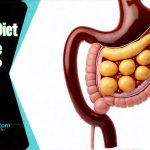The ketogenic diet, often lauded for its potential benefits in weight management and metabolic health, centers around drastically reducing carbohydrate intake and increasing healthy fat consumption. This shift forces the body to enter a state called ketosis, where it begins to burn fat for fuel instead of glucose. While many individuals thrive on keto, experiencing increased energy levels and mental clarity, digestive disturbances are surprisingly common – particularly when introducing or heavily relying on commercially produced “keto snacks.” These snacks, marketed as convenient solutions for cravings, frequently contain ingredients that can wreak havoc on the gut, leading to issues like soft stools, diarrhea, or general discomfort. Understanding why this happens requires a deeper look at both the principles of keto and the composition of these readily available products.
The problem isn’t necessarily keto itself, but rather how many pre-made keto snacks deviate from whole-food based approaches. A truly ketogenic diet emphasizes real, unprocessed foods like avocados, eggs, fatty fish, and non-starchy vegetables. However, the convenience factor has spurred a massive market for bars, cookies, chips, and other snack alternatives designed to mimic familiar treats while remaining “keto-friendly.” These often rely on sugar alcohols, artificial sweeteners, and highly processed fats – all of which can disrupt gut health and lead to undesirable digestive symptoms. It’s crucial to remember that just because something is labeled “keto” doesn’t automatically equate to healthy or easily digestible. The body reacts differently to whole foods versus heavily manipulated ingredients, even within the confines of a ketogenic framework. If you experience pain after eating it’s important to understand how your body is reacting.
The Culprits in Keto Snack Composition
Many commercially available keto snacks contain ingredients that are notorious for causing digestive upset, especially in sensitive individuals. Sugar alcohols like erythritol, xylitol, sorbitol and maltitol are frequently used to replace sugar, providing sweetness without significantly impacting blood glucose levels. While often touted as “gut-friendly” compared to traditional sugars, they can actually cause significant issues for a substantial portion of the population. – Erythritol is generally better tolerated than other sugar alcohols, but even it can lead to bloating and gas in some individuals. – Xylitol, while less common, is extremely toxic to pets and should be kept out of their reach. – Sorbitol and maltitol are known osmotic laxatives; meaning they draw water into the intestines, leading to diarrhea and soft stools. Artificial sweeteners like sucralose and aspartame can also contribute to gut dysbiosis – an imbalance in the gut microbiome – which can manifest as digestive problems.
Beyond sugar alcohols and artificial sweeteners, the types of fats used in keto snacks often play a role. Many rely on highly processed vegetable oils (soybean oil, canola oil, sunflower oil) that are inflammatory for some people and difficult to digest. Coconut oil is more easily digested by many, but excessive amounts can still cause loose stools. Furthermore, fiber content is frequently low in these snacks, contributing to faster transit times and potentially softer stools. The lack of sufficient soluble fiber – found abundantly in whole foods like avocados and flaxseeds – can exacerbate the problem.
Finally, ingredients added for texture or shelf-life are often problematic. Carrageenan, a thickening agent derived from seaweed, has been linked to inflammation and digestive issues in some individuals. Guar gum and xanthan gum, used as stabilizers, can also cause bloating and gas. These seemingly innocuous additives collectively contribute to the potential for gastrointestinal distress when consuming heavily processed keto snacks. It’s important to read ingredient lists carefully and be mindful of how your body reacts to different components. Understanding why you may feel bloated after eating can help identify issues.
The Gut Microbiome & Keto Adaptation
The gut microbiome – the trillions of bacteria, fungi, viruses, and other microorganisms that reside in our digestive tract – plays a crucial role in overall health, including digestion, immunity, and even mental well-being. When transitioning to a ketogenic diet, this microbial ecosystem undergoes significant changes. A sudden reduction in carbohydrate intake alters the food source for many gut bacteria, leading to shifts in their populations. While some beneficial changes can occur (like a decrease in sugar-loving bacteria), it’s also common for the overall diversity of the microbiome to initially decline.
This period of adaptation can make individuals more sensitive to certain ingredients, increasing the likelihood of digestive issues like soft stools. Commercially processed keto snacks exacerbate this problem because they often lack the prebiotic fiber needed to nourish beneficial gut bacteria. Without adequate fiber intake, the good bacteria struggle to thrive, allowing potentially harmful bacteria to proliferate and contributing to dysbiosis. This imbalance can further compromise digestion and lead to increased intestinal permeability – commonly known as “leaky gut” – which allows undigested food particles and toxins to enter the bloodstream, triggering inflammation and exacerbating symptoms.
Moreover, the rapid introduction of sugar alcohols in these snacks can overwhelm the gut microbiome’s capacity to process them effectively. The bacteria ferment these substances, producing gas and causing bloating, cramping, and changes in bowel habits. This is why slowly introducing keto snacks – or ideally focusing on whole-food alternatives – is crucial during the adaptation phase. Supporting your gut health with probiotic-rich foods (like kefir or sauerkraut) and prebiotic fiber sources can also help mitigate these issues. You might find simple tea rituals helpful during this time.
Identifying Your Trigger Foods
Pinpointing exactly which ingredient(s) are causing soft stools after eating keto snacks requires a bit of detective work, but it’s worth the effort. – Food Journaling: Keep a detailed log of everything you eat, including specific brands and ingredients in your keto snacks. Note any digestive symptoms that occur afterward, along with the timing and severity. – Elimination Diet: Consider temporarily removing all processed keto snacks from your diet and focusing on whole foods for several days to see if your digestion improves. Then, reintroduce one snack at a time, carefully observing how your body reacts. This can help identify specific trigger foods.
Start by eliminating the most likely culprits: sugar alcohols (especially maltitol and sorbitol), artificial sweeteners, and highly processed vegetable oils. Pay attention to ingredients like carrageenan, guar gum, and xanthan gum as well. It’s also important to consider individual sensitivities – what bothers one person may not bother another. Some individuals are more sensitive to certain fats or fiber types than others. – Read Ingredient Lists Carefully: Don’t assume a product is gut-friendly just because it’s labeled “keto.” Scrutinize the ingredient list for potential irritants. If you experience nasal drip after eating, there might be underlying issues to consider.
Strategies for Minimizing Digestive Issues
Once you’ve identified your trigger foods, there are several strategies you can employ to minimize digestive issues while still enjoying keto snacks (or finding alternatives). – Prioritize Whole Foods: This is the most effective approach. Build your keto diet around real, unprocessed foods like avocados, eggs, fatty fish, leafy greens, and nuts/seeds. Limit processed snacks as much as possible. – Choose Snacks Wisely: If you do choose to consume keto snacks, opt for those with minimal ingredients, avoiding sugar alcohols, artificial sweeteners, and questionable additives. Look for snacks sweetened naturally with stevia or monk fruit (in moderation).
- Increase Fiber Intake: Incorporate more soluble fiber into your diet through foods like avocados, flaxseeds, chia seeds, and psyllium husk. This helps regulate bowel movements and supports a healthy gut microbiome. – Hydrate Adequately: Drinking plenty of water is essential for digestion and preventing constipation. – Consider Probiotics & Prebiotics: Supplementing with a high-quality probiotic can help restore balance to your gut microbiome, while consuming prebiotic-rich foods nourishes beneficial bacteria.
The Role of Fat Intake & Digestion
While fat is central to the ketogenic diet, it’s important to remember that not all fats are created equal and excessive fat intake can sometimes contribute to digestive issues. Highly processed vegetable oils can be difficult to digest, leading to symptoms like bloating and diarrhea. Focus on healthy fat sources like avocados, coconut oil, olive oil, MCT oil (in moderation), and fatty fish.
Pay attention to how your body responds to different types of fats. Some individuals find that large amounts of coconut oil cause loose stools, while others tolerate it well. – Digestive Enzymes: Consider supplementing with digestive enzymes, particularly lipase (which helps digest fats) if you consistently struggle with fat digestion. – Portion Control: Even healthy fats should be consumed in moderation. Overeating can overwhelm the digestive system and lead to discomfort. If you notice soft stools after consuming high-fat meals, try reducing your portion sizes or spreading your fat intake throughout the day. The best time to take a walk after eating can also aid digestion.
Ultimately, achieving a comfortable and sustainable ketogenic lifestyle requires a mindful approach that prioritizes whole foods, supports gut health, and pays attention to individual sensitivities. While convenient keto snacks can play a role, they should be viewed as occasional treats rather than dietary staples. By understanding the potential pitfalls of these products and implementing strategies to mitigate their effects, you can enjoy the benefits of keto without sacrificing digestive comfort. If you’re experiencing consistent discomfort, it’s best to seek guidance from a healthcare professional to rule out underlying conditions like GERD and rapid heartbeat. Also consider if bloating after eating fruit might be a factor.


















